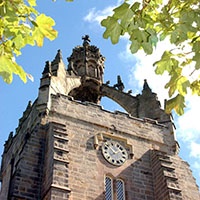
Lecturer
- About
-
- Email Address
- thomas.vogwill@abdn.ac.uk
- Telephone Number
- +44 (0)1224 273250
- School/Department
- School of Biological Sciences
Biography
I am an evolutionary biologist and microbiologist. My lab researches both the rapid microevolutionary processes of microbes as well as the bigger scale, macroevolutionary processes such as microbial speciation. In previous positions I have worked on a range of different aspects of microbial evolution, including herbicide resistance, bacteriophage evolution, and bacterial biogeography.
Timeline
February 2020 – present: Aberdeen, School of Biological Sciences
September 2015 – January 2020: Imperial College London, Silwood Park
January 2012 - September 2015: Oxford University, Department of Zoology
September 2009 – December 2011: University of Warwick, Warwick HRI
October 2006 – September 2009: University of Liverpool, Department of Biological Sciences
- Research
-
Research Areas

Biological and Environmental Sciences
Research Specialisms
- Ecology
- Microbiology
- Evolution
- Genomics
Our research specialisms are based on the Higher Education Classification of Subjects (HECoS) which is HESA open data, published under the Creative Commons Attribution 4.0 International licence.
- Teaching
-
Courses
- Publications
-
Page 2 of 2 Results 11 to 16 of 16
Coevolving parasites enhance the diversity-decreasing effect of dispersal
Biology Letters, vol. 7, no. 4, pp. 578-580Contributions to Journals: Articles- [ONLINE] DOI: https://doi.org/10.1098/rsbl.2011.0071
How does spatial dispersal network affect the evolution of parasite local adaptation?
Evolution, vol. 64, no. 6, pp. 1795-1801Contributions to Journals: Articles- [ONLINE] DOI: https://doi.org/10.1111/j.1558-5646.2009.00937.x
- [ONLINE] http://europepmc.org/abstract/med/20050909
Antagonistic coevolution accelerates molecular evolution
Nature, vol. 464, no. 7286, pp. 275-U154Contributions to Journals: Articles- [ONLINE] DOI: https://doi.org/10.1038/nature08798
Dispersal and natural enemies interact to drive spatial synchrony and decrease stability in patchy populations.
Ecology Letters, vol. 12, no. 11, pp. 1194-1200Contributions to Journals: Articles- [ONLINE] DOI: https://doi.org/10.1111/j.1461-0248.2009.01374.x
- [ONLINE] http://europepmc.org/abstract/med/19719839
Source populations act as coevolutionary pacemakers in experimental selection mosaics containing hotspots and coldspots.
The American Naturalist, vol. 173, no. 5Contributions to Journals: Articles- [ONLINE] DOI: https://doi.org/10.1086/597374
- [ONLINE] http://europepmc.org/abstract/med/19272015
The impact of parasite dispersal on antagonistic host-parasite coevolution.
Journal of Evolutionary Biology, vol. 21, no. 5, pp. 1252-1258Contributions to Journals: Articles- [ONLINE] DOI: https://doi.org/10.1111/j.1420-9101.2008.01574.x
- [ONLINE] http://europepmc.org/abstract/med/18631211
